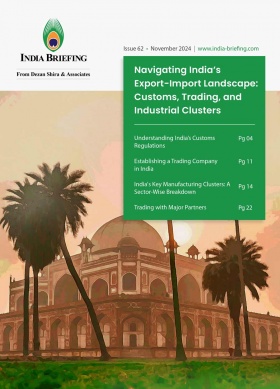Pharmaceutical SMEs in India Gain Time to Meet Enhanced GMP Standards Under Revised Schedule M
India’s Union Ministry of Health and Family Welfare (MoHFW) has announced its decision to grant small and medium-sized pharmaceutical companies an additional year to upgrade their facilities in compliance with the revised Schedule M of the Drugs and Cosmetics Act.
The revised Schedule M establishes enhanced quality standards and Good Manufacturing Practices (GMP) for pharmaceutical manufacturers, aiming to improve overall manufacturing quality, safety, and regulatory compliance across the sector.
India’s central government has granted a one-year extension for small and medium-sized pharmaceutical units with an annual turnover of less than INR 2.5 billion (US$28.77 million) to comply with the revised Schedule M standards, which set quality benchmarks and good manufacturing practices.
In response to requests from small and medium manufacturers seeking additional time to upgrade infrastructure, train personnel, and secure financial resources, the Union Health Ministry announced the decision to extend the compliance deadline. These manufacturers must submit an upgrade plan in Form A to the Central License Approving Authority (CLAA) within three months from February 11, 2025.
The initial deadline for submitting Form A under the revised Schedule M was March 31, 2025. However, the pharmaceutical manufacturers will now have to submit the form by May 11, 2025.
Form A refers to the official document that small and medium pharmaceutical manufacturers must submit to the designated authority to outline their plan for infrastructure upgrades, personnel training, and compliance with the new Schedule M standards. This form serves as a declaration of intent from manufacturers, detailing how they plan to meet the Good Manufacturing Practices (GMP) and equipment requirements within the extended timeline.
Earlier in January 2025, India established December 31, 2025, as the deadline for approximately 8,500 pharmaceutical units classified as MSMEs to implement these updated standards.
As a major exporter of medicines to low- and middle-income countries (LMICs), India must meet WHO GMP certification requirements. Currently, around 2,000 MSME pharmaceutical units in the country hold this certification, while the remaining units must expedite their compliance efforts.
Extended deadline for revised Schedule M compliance
On December 28, 2023, the central government introduced updated Schedule M requirements, broadening “good manufacturing practices” to include “good manufacturing practices and requirements for plant and equipment for pharmaceutical products.” Manufacturers were categorized into two groups:
- Large manufacturers with a turnover exceeding INR 2.5 billion (US$28.77 million) were given six months to comply.
- Small and medium manufacturers with a turnover of INR 2.5 billion (US$28.77 million) were granted a 12-month compliance period.
The revised Schedule M requirements took effect for large manufacturers on June 28, 2024.
Manufacturers that fulfill this requirement will have their implementation deadline extended to December 31, 2025.
Failure to meet the revised standards may result in penalties, including potential factory closures. Audits will be conducted three months after registration to assess progress, and appropriate action will be taken if the required upgrades are not implemented as committed.
Overview of revised Schedule M
The latest update to Schedule M of the Drugs and Cosmetics Rules, 1945, was notified by India’s Union Ministry of Health and Family Welfare on December 28, 2023. The revised guidelines include upgrades in physical infrastructure, air handling systems, machinery, and more.
Additionally, it introduces a comprehensive regulatory framework to align India’s pharmaceutical sector with global GMP standards. These changes focus on improving the quality, safety, and efficacy of drugs produced domestically, ensuring compliance with both national and international benchmarks.
New guidelines and requirements
The revised Schedule M is titled “Good Manufacturing Practices and Requirements of Premises, Plant, and Equipment for Pharmaceutical Products.” It encompasses critical principles such as:
- Pharmaceutical Quality System (PQS).
- Quality Risk Management (QRM).
- Sanitation and hygiene.
- Qualification and validation.
- Complaints and adverse reactions.
- Product recalls.
- Change control.
The implementation timeline for the revised guidelines is phased based on the size of the pharmaceutical companies:
- Large manufacturers, with turnover exceeding INR 2.5 billion (US$29.14 million), are required to comply with the revised Schedule M by June 28, 2024
- Small and medium manufacturers, with turnover up to INR 2.5 billion (US$29.14 million) or less, are required to comply with the revised Schedule M by December 28, 2024.
Infrastructure upgrades and improved operational methodologies
The updated guidelines call for substantial enhancements in pharmaceutical infrastructure and operational methodologies. These include the preparation and submission of detailed product development reports, rigorous validation of processes and methods, and the implementation of advanced pharmacovigilance and post-marketing studies.
Adhering to the new regulation may prove necessary for domestic companies for securing and maintaining manufacturing licenses, underscoring its significance for uninterrupted operations in the pharmaceutical sector.
Conclusion
The revised Schedule M marks a shift in India’s pharmaceutical regulations, reflecting the evolving landscape of global manufacturing standards. By implementing these changes, India aims to enhance its reputation as a trusted pharmaceutical exporter while ensuring the safety and efficacy of drugs for domestic and international markets.
(US$1 = INR 86.86)
(This article was originally published on January 3, 2025. It was last updated February 13, 2025.)
About Us
India Briefing is one of five regional publications under the Asia Briefing brand. It is supported by Dezan Shira & Associates, a pan-Asia, multi-disciplinary professional services firm that assists foreign investors throughout Asia, including through offices in Delhi, Mumbai, and Bengaluru in India. Readers may write to india@dezshira.com for support on doing business in India. For a complimentary subscription to India Briefing’s content products, please click here.
Dezan Shira & Associates also maintains offices or has alliance partners assisting foreign investors in China, Hong Kong SAR, Dubai (UAE), Indonesia, Singapore, Vietnam, Philippines, Malaysia, Thailand, Bangladesh, Italy, Germany, the United States, and Australia.
- Previous Article India Offers Tax Relief for Foreign Tech Experts to Boost Electronics Manufacturing Sector
- Next Article India’s New Income Tax Bill 2025: An Overview








